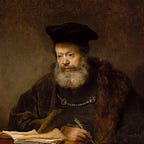Everywhere Is Racist
A fatal contradiction within modern Liberalism
Go to any country outside the West and the universal prevalence of racism, intolerance and xenophobia will become abundantly clear. You might find it hard, for example, to rent an apartment in Japan. Japanese landlords, you see, are wary of “foreigners who are unable to communicate in times of conflict and violate implicit rules about noise and living arrangements due to cultural differences”. If you happen to be Jewish I’d stay out of any country in the Greater Middle East. And there are countless places in the world where you’d be well-advised to dress modestly and avoid promoting western ideas such as gender equality or religious tolerance. Generally speaking, people are xenophobic not due to some pseudo-scientific Darwinian theory of racial superiority but because they’re suspicious of people who do not share their cultural values, not only because they fear that interaction with such people may lead to some unpleasantness, but often also because they’re steadfast in the defence of their traditional heritage, religion and way of life.
We are so arrogant about the superiority of our civilisation that we think it capable of containing any number of people from a variety of different systems of values. If you pursue that liberal value system that holds tolerance, multiculturalism and cosmopolitanism (the belief that all human beings adhere or should adhere to the universal morality of a single community, the cosmo polis or world state) as sacred values to its logical conclusion you arrive at some unpleasant implications. When liberals speak of social progress, whether in their own country or in the Third World, they almost invariably mean “progress towards Western concepts of the good”, that is towards inclusivity, tolerance, individualistic self-expression, democracy and so on. They speak as if there’s nothing we could learn from other cultures, or as if cultures, like hats and hairstyles, are merely superficial memes and underneath the surface level all people really think the same. One cannot hold the belief that liberal values constitute the highest ideals of humankind and yet ignore the fact that in many other cultures not only are these values not held to be the highest good, but they are also viewed by many as the greatest evil. This is the paradox of defending intolerance in the name of tolerance.
Lest I be misunderstood, this does not constitute an endorsement of this point of view. I think that we have much to learn from traditional Islam and from the Japanese. Fear and respect are cousins, and the attitude of indifferent “acceptance” is akin to the soft bigotry of low expectations. Traditional cultures are not sick or primitive entities that we as white saviours must protect. They are coherent systems of values that unfortunately do not always cohere with our own. The burqa and hijab are not mere fashion items. They are cultural artifacts that represent a certain view of the role of women in the family and in society.
Liberal icon of tolerance Angela Merkel and others have declared that Christianity is the most persecuted religion in the world. For several decades Boko Haram — a group whose name means “western education is a sin” — has been kidnapping schoolgirls and killing African Christians by the hundreds. It goes without saying that this despicable group represents an infinitesimal fraction of the world’s Muslim population. It would be equally irresponsible to deny that about three quarters of Muslims worldwide believe that homosexuality is immoral. Even among the mostly Westernised, well-integrated Muslim community in the US, only about 52% believe that society should accept gays and lesbians, and the percentage of Muslims who identify as gay or lesbian stands at about zero. It is true that some fundamentalist Christians are just as or even more intolerant towards the LGBTQ+ community, but both of these demographics are here to stay. Recent protests by Muslim parents against the UK’s LGBT-friendly school curriculum and the story of a gay couple from Colorado who took a baker to court for refusing to make a same-sex wedding cake are but two instances where the tension between different concepts of tolerance has come to the fore. And yet, assuming we hold paramount our own liberal ideals and seeing that we already have many people among us who do not accept gay people, for example, is it intolerant to say that we should be wary of accepting those people who hold intolerant views?
This line of thought leads liberalism either to intolerance or self-destruction. Either way, it ceases to be liberal in the modern sense. We ignore its internal contradictions at our own peril. Wherever Right- and Left-wing populists and authoritarians rise to power, wherever Left-wing parties are engaged in internecine war while the Right holds fast, wherever a rise in violence against women is downplayed in the name of political correctness, there we can see Liberalism at war with itself. Data shows that in America white liberals are the only demographic with a significant pro-outgroup bias, but the woke crowd isn’t crucifying itself on the tree of tolerance merely out of a sense of guilt. Our original sins are numerous — colonialism, slavery, white supremacy — but imperialism has been the norm for millennia, slavery is still practised in some places to this very day and racism is universal. What sets the white liberal apart is a deep sense of spiritual superiority over the benighted “racist” whites they seek to defeat and over the poor, defenceless masses above which they set themselves as saviours.
